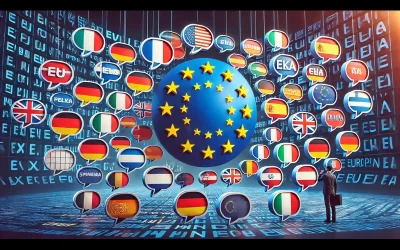The demand for translation services has increased significantly because the academic community is growing increasingly integrated. Being able to work in a multilingual environment is a greater critical requirement now than ever before, with research progressively moving towards collaboration and the search for recognition by academic institutions becoming global. Be it translations of scholarly articles, academic papers, research findings, or educational materials, the need for academic translation services is acute in making knowledge available to a global audience.
What Is Academic Translation Service?
Academic translation services refer to converting one academic document into another language. Such services are not just a matter of conversion from one language to another. They entail one’s significant knowledge of the subject, target audience, and fine points of the source and target languages. Academic-type translations are performed by experts with specialized knowledge in their specific academic area, such as science, engineering, humanities, or social sciences. One of the greatest challenges for academic translation services is delivering complex thoughts, theories, and data without any loss of intended meaning and context. This requires an elevated level of subject matter proficiency, and the languages involved. The best academic translation services should ensure that the translated content is linguistically correct, appropriate, and relevant to the target audience.
Certified Translation ServicesGet your documents translated and certified by a professional translator in 120+ languages with 24 hour delivery. Get a Quote |
Why Do We Need Academic Translation Services?
Support from academic translation services is vital. In more ways than one, academic institutions and researchers seek to publish their work in international journals, but one problem they frequently encounter is the apparent language problem: as English is the chief language used for academic purposes, it is thus difficult for those who have English as their second language to deal with. Academic translation services assist the researchers in the translation of their work in English or any other language to reach a wider audience. Academic departments will, therefore, have to collaborate and team up with other academic departments that are from other countries. For instance, in a research project that is done by a team of scientists from Japan, Brazil, and Germany: end-stage research documents, proposals, and findings will have to be translated into many languages. Such collaborations are hard to take place without academic translation services. Another key field for academic translation is the translation of educational materials. Some universities and changes offer courses online, as well as schools with students studying from abroad and, therefore, they must translate the educational course books and notes, the textbooks, and lectures into several other languages. This is to ensure that students who use other vernacular have an equal share of quality education despite their mother tongues.
Challenges in Academic Translation
Yet quality academic translation does not come without difficulty. It can be said that accuracy and precision in the target text are the most problematic issues. Academic documents mostly contain specialized vocabulary, complicated ideas, and arguments that need an in-depth understanding of the context. A translator is supposed to be both fluent in the target language and knowledgeable in the academic field of the document being translated. Moreover, academic translation has to maintain the tone and writing style of the author. Normally, the nature of academic writing is very formal, and this formality has to transfer even in translated documents. The translator needs to make sure that the document he or she is translating is congruent with the existing academic standards of the target language, which may vary from the source language. Another obstacle in academic translation services is that of cultural differences. Contents under academic services always hold an extraordinarily strong background of the language culture where the source emerged, and a straight translation can never work out. In such a case, the translator would need to understand the cultural niceties involved and structure the contents such that the translation is correct and sensitive to culture.
The Role of Technology in Academic Translation Services
Technology has been increasingly intervening in academic translation for a brief period already. Among such tools, translation software and programs have become some of the main assisting instruments for translators since machine translation tools and CAT technologies are incredibly useful. The tools facilitate the process, speed up the translation, and ensure consistency in translation when a large text is in question. While technology would come in very handy, it can only serve to assist but not replace human expertise and judgment in the process. Machine translation often lags behind the complex syntax and specialized terminology characteristic of these kinds of texts. Academic translation services, quite for that reason, usually find their underpinnings in the use of a mixture of technology and human expertise in producing the most viable translations. In addition to that, artificial intelligence being improved has helped produce far better translation tools. These tools, with the help of Artificial Intelligence, could analyze context and likewise learn about their previous translations, making it highly accurate over time. Although no such tools are adequately perfect yet, they are very much a giant step when it comes to actually giving Academic Translation Services.
Academic Translation ServicesGet your academic documents translated by an academic translator in 120+ languages with 24 hour delivery. Get a Quote |
Choosing an Academic Translation Service
Given the requirements for accuracy and professional expertise, the process of who to trust for academic translation services is an important one. Academic translation services come in diverse types and being set against the seriousness of the academic purpose and that of the information required in the document, the most ideal provider would be one with relevant experience. The following should be kept in mind when considering academic translation services:
Subject Area Knowledge: The translator should be a professional expert in the literature field for the document to be translated. This will ensure the ability to understand and interpret terminologies and meanings appropriately within the subject area.
Language proficiency: The translator should be able to command both the source and target language and be well aware of the language between the two languages.
Quality Assurance: Look for a translation service provider that follows a quality assurance mechanism. This may describe the multiple rounds of editing and proofreading to make the document translation accurate and error-free.
Confidentiality: Most academic documents might contain extremely confidential information, such as unpublished research findings of a study. Ensure the academic translation services you hire are highly secretive and exercise data protection policies.
Reputation: Search for reviews and clients’ testimonials to understand the repute of an academic translation service provider. A provider with a good record of giving quality work is likely to meet your needs.
Conclusion
Conclusion Academic translation provision is thus a necessary resource for every individual researcher, learning institution, and even students within the present-day global village. Academic translation services provide for the exchange of information between different countries, establish international collaborations, and offer an expanding audience more chances of coming into contact with academic information. From the translation of a research paper, textbook, and educational material, among others, the most crucial determinant of your work’s accuracy, quality, and influence is engaging with the services of an academic translation services provider. As the need for services in academic translation increases, being attached to the right professional, along with adequate technology and a commitment to quality, will be of huge importance. This way, one can be assured of properly conveying academic content to an international audience, meaning that one contributes knowledge/experience and advancement in worldwide education.
 Rana Maalouf
Rana Maalouf

